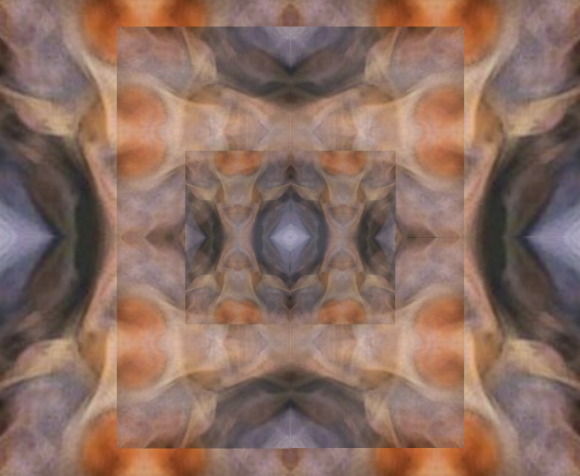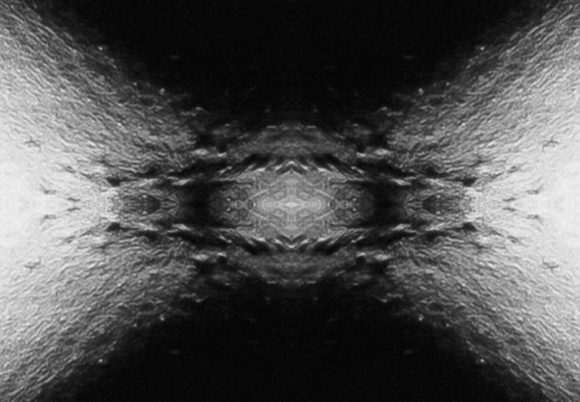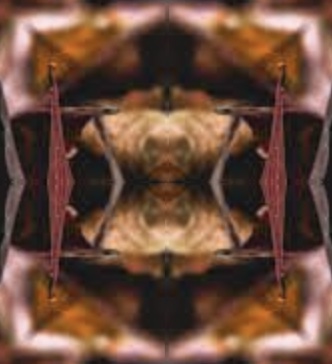What makes Jungian thought, although it is generally called “psychology”, really a philosophy of the unconscious are its speculative mode and its central idea: that our own psychological life is not transparent to us. The latter means that our thoughts, emotions, intuitions, memories, phantasies, and intentional behaviors — all of our psychological life — can at times be triggered or shaped by factors independent of ourselves, even against our will. The central idea in itself, however, is not particularly speculative: there is nothing special in the idea of factors independent of ourselves (i.e., independent of individual persons and their conscious personalities).
Many such factors, for instance, we suppose to reside in the outside world — the world of material bodies, which is mediated through our senses. If a person walks in the sun for a hours, their skin may become burned, which produces intense sensations and pain; at other times, one may catch a virus and develop a cold; more obviously, one encounters another person on the street, and that person addresses us with a question, which then triggers a whole chain of psychological reactions (thoughts and memories, emotions, and so on). All these examples show independent factors at work: they act on us whether we want it or not, causing changes in both the body and the mind of the individual person who encounters them — changes we may try to evade or influence to some degree, but which we can never fully control, and which in any case are not of our choosing in the first place.
But so far, all these factors are located in the external world. The Jungian claim, however, is that in addition there is an inner world, a world that encompasses factors psychological in nature — which are similarly independent. Being psychological in nature, these factors cannot be located in material bodies (such as other people, viruses, or sun radiation, as in the examples above). But otherwise, we encounter them in much the same ways: they appear spontaneously, might cause psychological and even bodily changes in us, and are neither chosen nor can be fully controlled by us.
We might resist this Jungian claim in (at least) two distinctive, but related ways. The first would be along the lines of “if it’s psychological, then it is in my mind, and what’s in my mind, I can consciously control”. The second comes from a deep-seated premise which many of us appear to hold (in a more or less reflected way): that anything which exists independently of our experience of it must be based in something material.

Both lines of resistance come from a pre-reflective understanding: the first from a tendency to think that any psychological factor can be chosen and controlled by the conscious personality — that the very definition of a psychological episode would entail its being chosen and so controlled; the second from a tendency to locate anything that can appear spontaneously and affect us in an external object which we primarily encounter through the senses. Both tendencies have their roots in everyday experience; and there they are, in a sense, vital presumptions in how we interact with our environments. However, on closer reflection, they also both turn out to be at least incomplete, and possibly wrong.
First, then: the tendency to think that any psychological factor is chosen and can be controlled by the conscious personality is understandable from the fact that, often enough, we do control our own psychology: we can deliberately think through lines of argument, or do calculations, re-present certain images before our own eye (visualization), evoke memories or daydream fantasies, even work ourselves into some emotions — rage, anxiety, or laughter being extreme examples; but we can also talk ourselves into pride, admiration, or envy. Above all, we do certainly direct much of our behavior ourselves, forming intentions and acting on them. Thus any given type of mental state or episode can be under conscious control, and often they are. But obviously, it doesn’t follow that this has always to be the case. We can control all of these some of the time; but none of them we can control all of the time. And with just a bit of life experience, we all come to realize this as a fact about ourselves, though of course different people, having varying degrees of reflectiveness and willingness to self-scrutiny, will recognize it to differing extents.
Interestingly, independent influence comes in two basic variants here: positively, as mental episodes of the form which we can (and sometimes do) consciously produce — such as thoughts or memories —, but which can come up unbidden and unwanted (e.g. at the wrong moment); and negatively, as disruptions of episodes we’re consciously pursuing, such as failures of recall, hesitation and even inability to act on a formed intention, and so on. These, of course, were what prompted Freud’s work on the “psychopathology of everyday life” and Jung’s association experiments, and which led to the first theoretical articulations of the notion of “the unconscious” as independent psychological factors. What counters the first tendency, on reflection, is thus not merely individual life experience, but also a significant observational body from psychotherapy and analysis.
Now the second way in which we might resist the idea that there are independent psychological factors comes from a widespread supposition of a materialist ontology: the view that anything which exists independently of our experience of it must be based in something material (existing in space and time, bound by causal relationships with our bodily existence). From such a premise it would follow that the Jungian notion must be empty; it may even be inconsistent with it. In other words, the Jungian notion, as a substantial part of a metaphysical theory (a complete description of reality), is incoherent if we hold on to materialist ontology.
But with this second tendency, too, things are not that simple. In everyday life, it may seem at first glance that everything around us is in fact material bodies we encounter through the senses; but on reflection we realize that this is not the case even with all the examples I have given above. True, we can see and hear another person we encounter; less clear: we may be able to feel the sun on our skin, although the actual process of burning is prolonged and our direct perception of it is sketchy and delayed (we are not typically paying attention to the sun on our skin for hours, i.e. we do not really perceive the whole going-on: we just notice a sensation from time to time, which may become more persistent and prevalent only at later stages when the burn gets a hold); but finally, we do not in any way observe the virus which causes us to get infected with a cold, but only infer its presence indirectly from the symptoms (which also occur later in time than our actual encounter with it). And such inference, although it may come easy to us nowadays, is based on scientific background knowledge which we’d had to acquire in the first place (and which we take, not on personal observation, but on trust, based on division of labor and shared expertise in our modern societies, not to speak of elaborate education structures, which all had to be in place for our individual understanding of what happens during a virus infection).
Thus at any rate a materialist ontology is nothing simply self-evident, and it certainly does not follow convincingly from everyday phenomenology alone. It is rather a background theory which has informed much of our detailed understanding of the world over the last two or three centuries; even as such (as a philosophical background theory), it has been hardly undisputed. The Jungian speculation certainly presents itself as an alternative to it (indeed at times in explicit opposition, as e.g. Hillman does in DU 68-74). Unfortunately, however, when measured by the yardsticks for metaphysical theories, comapred with materialism it lacks rigor and detail in its central notions — which would be the least required for its being contemplated seriously as such an alternative.
For it is one thing to observe that there seem to be independent factors that appear to produce and influence psychological episodes in people, and another thing to plausibly argue that these either cannot be accounted for in terms of independent influences from material objects — or if they can, that nonetheless there would be theoretical advantages to accounting for them in terms of the Jungian notion instead. The occasional polemic that we find in Jung and Hillman doesn’t get us very far along the way (and misguided attempts to reframe Jung-Hillman metaphysics as objective science are positively counterproductive here). What is required instead is an investigation into the capacity of the central Jungian idea — of independent psychological factors which themselves form a recognizable stratum of reality — to yield a satisfactory (albeit speculative) ontology which can produce fresh insights. And the question of individuation would be one of the first and most fundamental topics in such an investigation.



